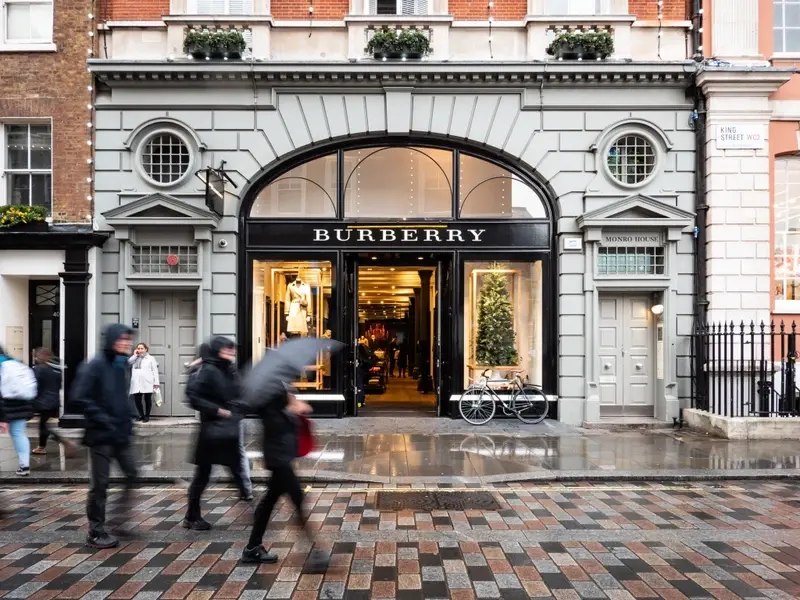
- China comparable sales slump 35%
- EMEIA store sales surge 47%
- Company maintains medium-term targets
Shares in Burberry (BRBY) were the biggest FTSE 100 fallers on Friday, marked down 6% to £15.50 after the British luxury brand reported subdued first quarter comparable store sales growth of just 1% after its revenue performance was impacted by severe lockdowns in mainland China.
The good news is Burberry hailed a strong recovery outside of China, with comparable store sales up 16%, and new boss Jonathan Akeroyd confidently maintained his medium-term targets of high-single digit revenue growth and 20% margins for the luxury goods group.
CHINA SALES SHREDDED
Burberry’s retail revenue grew by a modest 5% to £505 million in the 13 weeks to 2 July 2022 with progress hindered by rising macro-economic uncertainty and a headwind from China, where comparable sales slumped 35% amid restrictions and store closures put in place to control Covid-19 outbreaks.
Reassuringly, the trenchcoats-to-cashmere scarves seller insisted its performance in mainland China has been ‘encouraging’ since its stores reopened in June, with the company adding it is ‘actively managing the headwind from inflation’.
Akeroyd, who took over as chief executive from Marco Gobbetti in March, explained: ‘Our performance in the quarter continued to be impacted by lockdowns in mainland China but I was pleased to see our more localised approach drive recovery in EMEIA (Europe, Middle East, India and Africa), where spending by local clients was above pre-pandemic levels.’
EMEIA REBOUNDS
Stripping out the Chinese mainland, Burberry’s comparable store sales grew 16% in the quarter, boosted by strong sales of leather goods and outerwear with the Lola handbag range proving particularly popular.
Growth was strongest in EMEIA, where comparable store sales surged 47% as sales to American tourists rebounded, helping to offset lower sales to Chinese tourists.
‘Our focus categories, leather goods and outerwear continued to perform well outside of mainland China and our programme of brand activations boosted customer engagement,’ said Akeroyd.
‘While the current macro-economic environment creates some near-term uncertainty, we are confident we can build on our platform for growth.’
Elsewhere in the luxury sector, shares in Richemont (CFR:SWX) fell 5.1% to 95.8 francs on the Swiss stock exchange after the Cartier brand owner reported first quarter sales declines in mainland China, Macau and Hong Kong.
As Danni Hewson, financial analyst at AJ Bell, explained, while China’s latest GDP figures included news that retail sales had picked up in June, ‘there is a feeling that boost may only reflect pent-up demand from people who couldn’t get out during lockdowns, meaning the month’s sales recovery might be unsustainable.’
DISCLAIMER: Financial services company AJ Bell referenced in this article owns Shares magazine. The author of this article (James Crux) and the editor (Ian Conway) own shares in AJ Bell.





